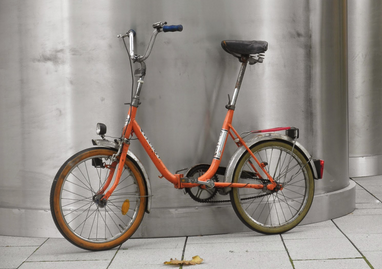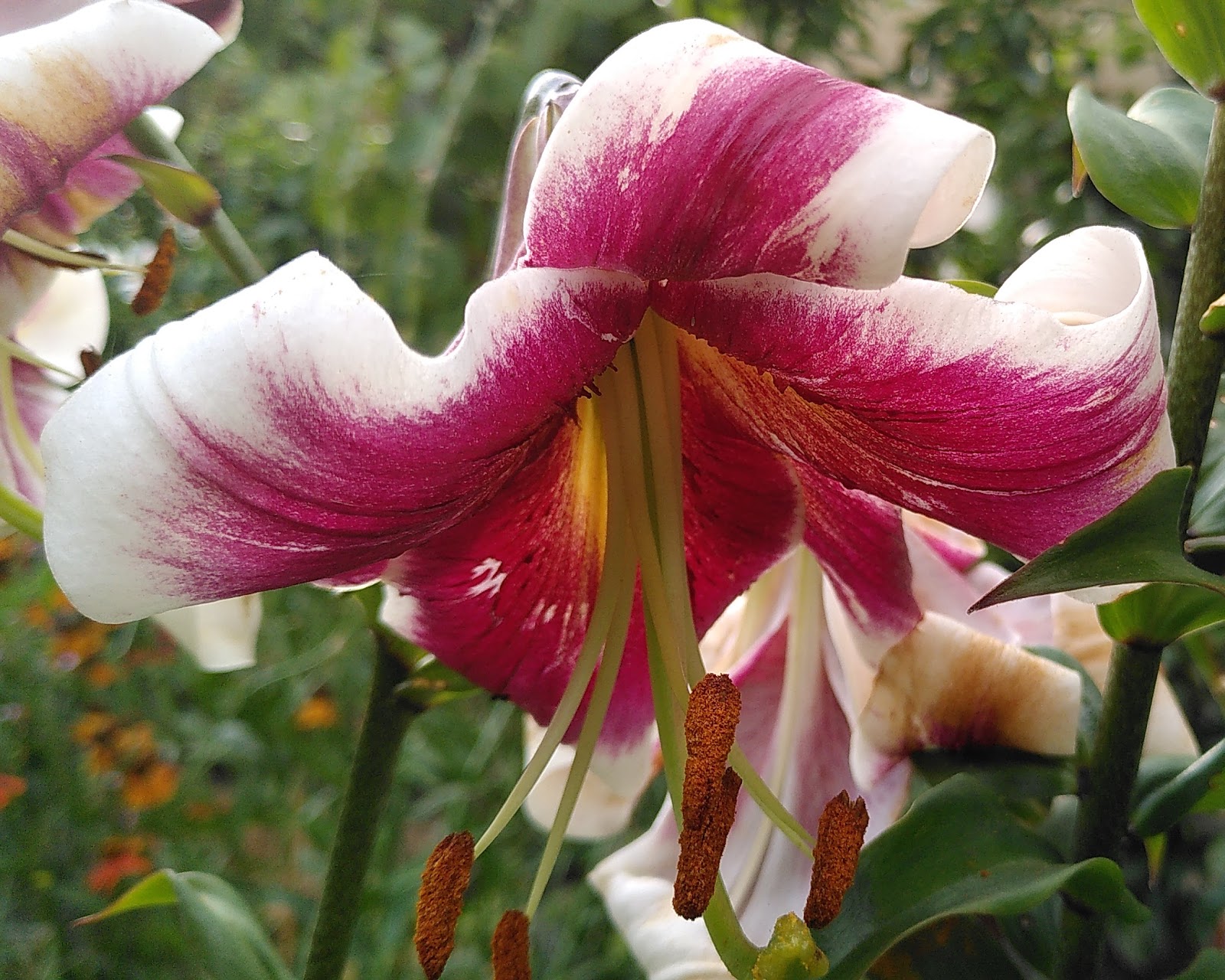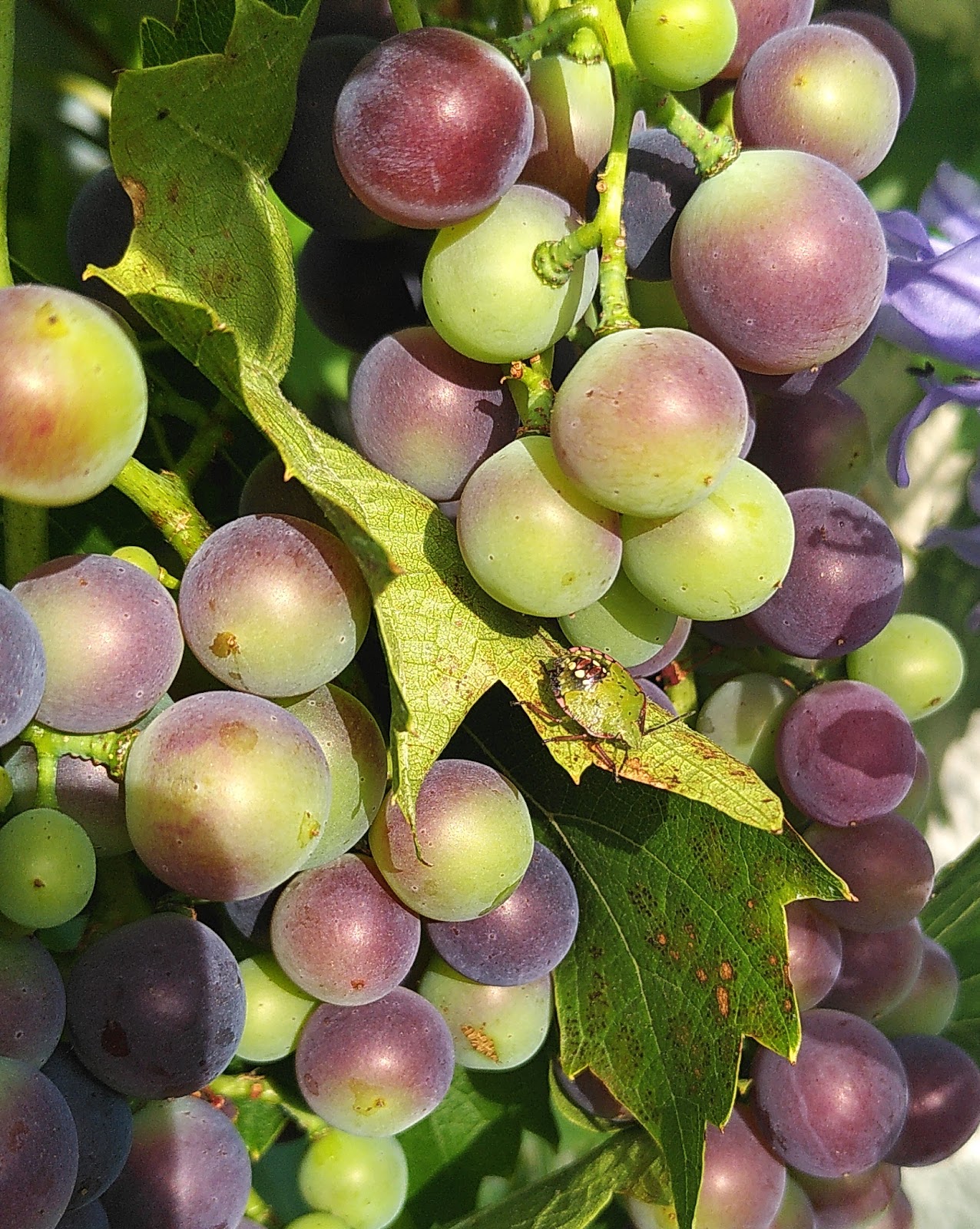Behold the bicycle: an ingenious arrangement of metal and rubber that liberates the body from the dusty plod or the frustrating car to ride on a cushion of air, at speed or with leisure, stopping on a whim, travelling for free. Its design is simple and its maintenance inexpensive. Yet for all the ease and economy the bicycle possesses an even greater quality. It offers the possibility of escape.
This is me with bicycle number one, in the summer before I started school. One morning my father told me that if I could show him by Saturday that I can ride a bike, we would go into town to buy one for me. I have written about it here.
For me, cycling is a means to get from one place to another. It is neither a hobby nor a sport activity although I have done a lot of fabulous long distance cycles in my life.
I do not own a single piece of "cycling" attire apart from basic water- and windproof stuff which I often forget to bring and a hi-vis vest with IKEA family written on the back (a freebie from way back). I own a helmet but don't always wear one (another story).
This first bicycle was used to travel to and from school during my first four years (German primary school) in all weather, all seasons, unless the roads were icy. All kids had bikes, they were our horses, our racing cars, our ladders to get up on to a high branch, our scaffold when we built dens, they were an extension of ourselves. This bicycle stayed with me until I was half way through secondary school (which was too far from home to cycle) and my legs had grown too long for it. I still managed to have good grades then and as a reward - always rewards in my family - I received a fancy folding bicycle, the latest craze at the time.

Bicycle number 2 looked a bit like this one and I brought it with me when I started university in Heidelberg. Like all of the very old German university cities, Heidelberg is really a small town and cycling is the fastest way to get around. But in order to be part of the cool crowd, it became important to invest in a Dutch bicycle, a preferably vintage Gazelle Omafiets. Purchase of which involved some pre-EU smuggling across the Dutch-German border. My memory is hazy.

Bicycle number three was the first one with gears, three gears to be correct and it was the only bicycle to date that was stolen from me, outside a pub one night. At the time I was a member of the student union and as it was deemed necessary for me to have a mode of reliable transport at all times - we were organising marches and sit-ins and boycotts all over town - bicyle number four, an almost identical replacement but with five (!) gears, was generously financed. And it was bicycle number four that I rode from Heidelberg to Dublin, together with R on his bicycle, in the autumn of 1980. There were stopovers in Amsterdam and Rotterdam and London and ferry journeys and for part of the UK we used the train but we cycled off the mail boat from Holyhead one early morning onto Dun Laoghaire pier into the Irish rain. This bicycle brought me all over County Dublin, along the Wexford coastline and into the Wicklow mountains. It had its troubles, something with the gears not being aligned but bicycle number four, and R's bicycle, too, were eventually fitted with a child's seat on the back to carry S across Cork, up and down the hills, to preschool and her first primary school, panniers packed below her legs. When we left Ireland to work in the small African country we call paradise, we gave both bicycles to another young family on loan forever.
Bicycle number five was only with me very briefly. A proper pink lady's bicycle with a fancy basket hanging from the handlebars. I inherited it from a Swiss midwife who left paradise in a hurry after she discovered her Swiss doctor husband's affair with a young local nurse. It wasn't very practical, the bicycle, it attracted a lot of attention and it often took me far too long to get to work or home what with people stopping me and cheering and laughing. So when the wife of a minister decided she wanted to have it, I sold it to her for a small fortune in foreign currency. I believe she cycled around her courtyard for a while.
Before bicycle number six, I had to live without one for almost two years, travel, work, family and work interfered. But at least I could watch my child learning to cycle, which she managed one sunny afternoon under the supervision of her Irish granddad.
Eventually, number six was purchased at the fleamarket, a sturdy second hand one with five gears, it lasted for the first year of our new life in Germany and was soon replaced by bicycle number seven, brand new and again five gears! On number seven I cycled along the Danube into Vienna, along the Rhine south to Switzerland and northwest to Holland, and along many more German rivers until I finally had enough money to spend on a serious trekking bicycle, twelve gears, hydraulic breaks, strong handle bars, to carry me up and down the hills to work and countless other long distance trips for 12 years. I was ready to spend the rest of my life with bicycle number eight, but shit happened, aka chronic disease diagnosis, and now bicycle number eights rests patiently in the basement for visitors to give it a run.
At around that time, while I was coming to terms with my miserable fate and people suggested cumbersome tricycles and even wheelchairs, along came the amazing invention of the e-bike. Thus, bicycle number nine, by now scratched and covered in accident wounds and various campaign stickers, has been my chariot for 14 years now. It has saved my life, my sanity. I call this bicycle my freedom. On it I have cycled up and down the coast of North Holland, along various German rivers, across the Auverne mountains in France and I still dream of cycling across the Alps from Bavaria to Milano and on to Venice. And that route from the Rhone glacier to the delta or at least as far as Lake Geneva. Alas, only dreams.
The bicycle is the most civilized conveyance known to man. Other forms of transport grow daily more nightmarish. Only the bicycle remains pure in heart.
Iris Murdoch
Every time I see an adult on a bicycle, I no longer despair for the human race.
H.G. Wells












